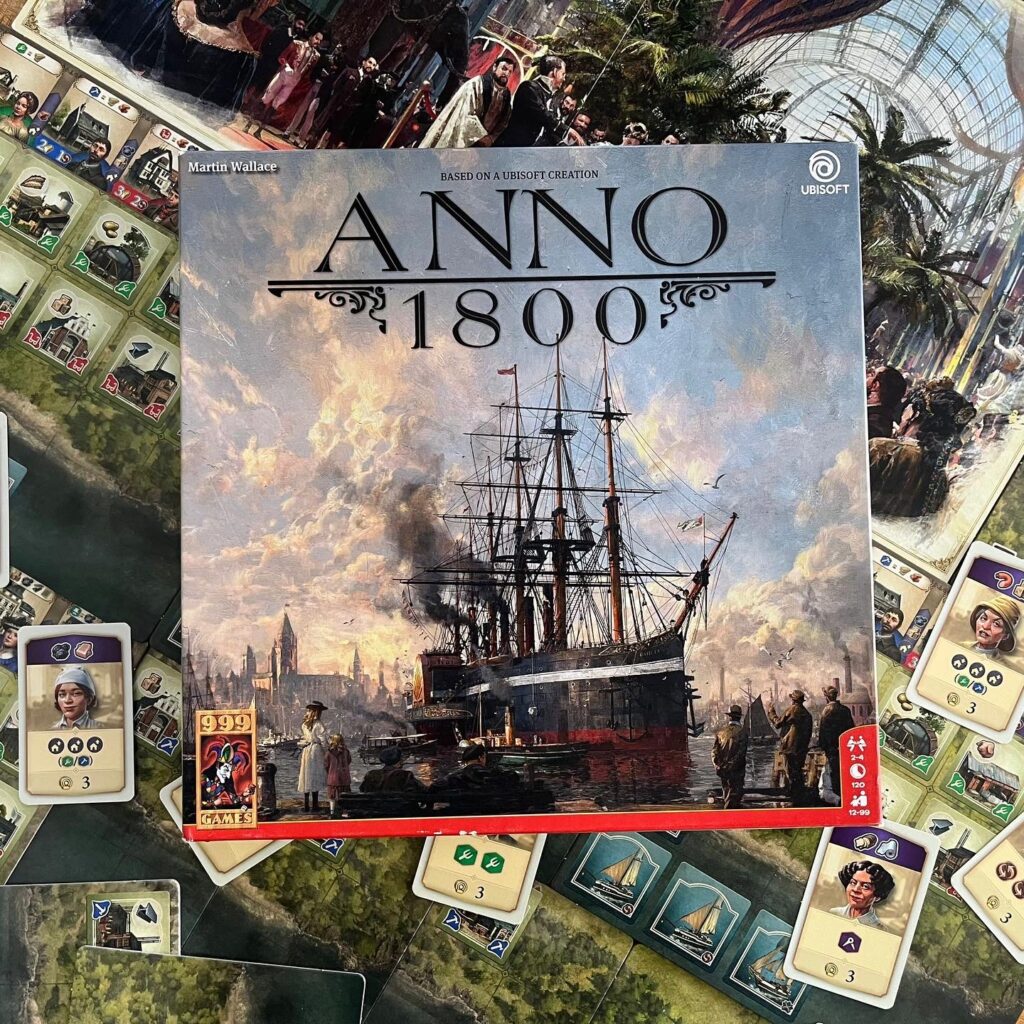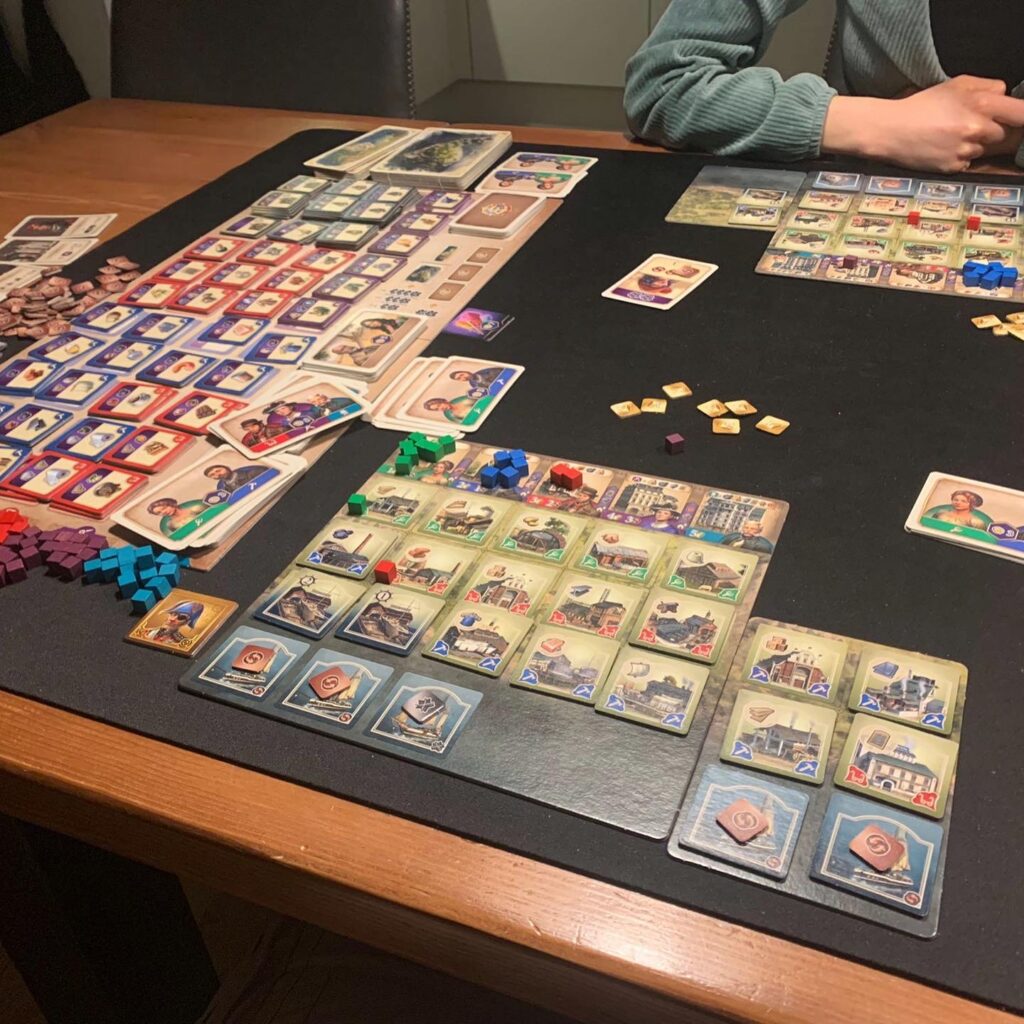As an avid board gamer, I could not contain my curiosity when I heard about the board game Anno 1800, based on the beloved video game. I was excited to travel back in time and experience what it was like to run a successful trading company in the nineteenth century. This game promised an immersive journey through history, where I had to do my utmost to build the largest and most prosperous city on my own island!
Background
The game is set in the year 1800 during the Industrial Revolution, with players discovering a new island and building factories to trade with the Old and New Worlds. The goal is to progress and, like the PC game of the same name, keep satisfying your population. Suitable for players aged 12 and above, the game invites you to immerse yourself in the future of industrial progress and get your hands dirty trading goods.
The board game looks beautiful, with detailed artwork on the box and playing materials. It is clear that the game has been designed with fans of the computer game in mind, as if the artwork has almost been copied and pasted. Setting up the game takes about 10 minutes, and despite the many components, it is easy to understand how everything works.
Gameplay overview
Each player starts with their own island board, a set of nine population cubes and a deck of nine population cards corresponding to the needs of their inhabitants. The population cubes represent five different types of workers: farmers, workers, craftsmen, engineers and investors. These workers play a crucial role in producing various goods available on the player board.

During your turn, each player has access to one action from nine choices. These choices include expanding industries, playing population cards, upgrading population cubes, exploring the old or new world, or celebrating a festival to renew workers. After performing their action, the game continues clockwise. The game ends when a player fulfils their last population card.
The game revolves around expanding industries, with players using their workers to produce goods and add new construction tokens to their island board. For example, by sending a farmer to produce pigs and a craftsman to produce coal, a sausage factory can be established on the player’s island. Expanding your industry is essential to meet the resource requirements of population cards. Players have multiple avenues to meet these needs and further expand their industries.
In situations where a player needs to produce an item that cannot be accommodated on their personal board, they can use trade tokens from their trade network to access resources from other players. The opponent supplying the resources receives gold from the supply, which can be used to renew their own population cubes.
Players start the game with an exploration token through their trade network. These tokens can be used to explore both the old and new worlds, gaining access to new parts of islands or unique resources. The number of exploration tokens and trade tokens can be increased by adding more ships to the water areas on the island board.
Population cards, along with end-of-game goal cards, guide players by indicating the different scoring requirements. For example, if several population cards in a player’s workforce require beer, they must work to establish a brewery on their island. Played cards offer bonuses such as free population upgrades, one-time trade tokens or extra workers. Each new population added to a player’s supply is accompanied by a population card drawn from the main board deck.

The game ends when a player has fulfilled all his population cards. Points are earned by completed population cards, expedition cards acquired by exploring the new world, remaining gold and goal cards. The player who empties their hand first also receives a token worth seven points to increase their final score. The player with the highest score emerges victorious.
Conclusion
Anno 1800 offers innovative gameplay elements and an engaging experience in the age of the Industrial Revolution. The ability to trade and explore adds depth to the game. Although there are some shortcomings, such as the luck factor when drawing cards, it remains a challenging and compelling board game. With a few tweaks, Anno 1800 could become a topper in its genre.



